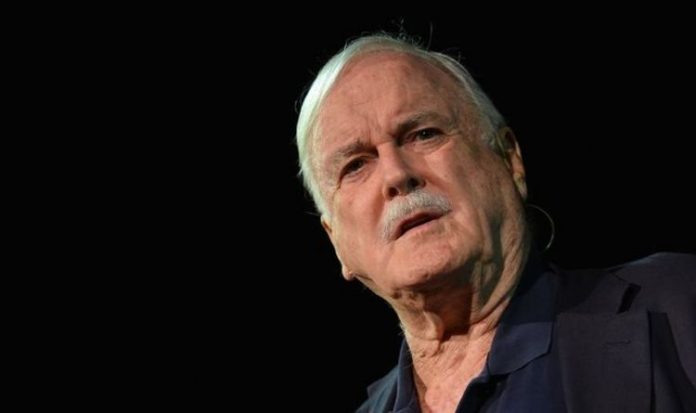The Fawlty Towers and Monty Python star vented his frustration in a tweet posted yesterday night. It comes amid news that Mr Sharp, a former banker for financial giant Goldman Sachs, donated around £400,000 to the Conservative Party.
Mr Cleese said: “I can remember when we had the best TV in the world. Now we have dancing and baking.”
However, he also attacked the BBC’s current head, writing: “A very rich banker, who studied economics at Oxford, and who is a big contributor to the Tory party, is obviously the ideal person to help the BBC start making some good quality programmes again.”
Mr Sharp, as head of the BBC, is due to lead negotiations with the Government regarding the future of the broadcaster’s licence fee.
The ex-banker was also formerly a director of the Centre for Policy Studies, which has called for the abolition of the BBC’s license fee, according to the Byline Times.
Mr Sharp joins Tim Davie, the BBC’s new Director-General, as the broadcaster’s new senior appointee.
Mr Davie himself has also had close links with the Conservatives, having served as deputy chairman of the Hammersmith and Fulham Conservatives in the 1990s.
READ: BBC Weather: Warnings issued for heavy snow as further disruption expected across Europe
“If the BBC is to truly represent all licence fee payers, that needs to change.”
Mr Bradley also praised Mr Davie for “talking a good game” on tackling what he called “bias” within the broadcaster.
Other political figures have also called into question the BBC’s current operating model.
William Clouston, leader of the SDP party, told the ‘Defund the BBC’ group that the license fee should be scrapped.
Instead, Mr Clouston said it should be funded “by Government directly”.
He cited impartiality as one issue, though he did not specify whether it was particularly right- or left-wing.
The BBC has defended its own license fee funding model. It said in a statement to the Northern Echo last month: “The licence fee continues to ensure the BBC is an independent, universal broadcaster, committed to serving all audiences and investing in British creativity.”
Currently, watching BBC programming without a TV license can lead to prosecution and a fine.
The license fee funding model potentially faces an overhaul in 2027.







